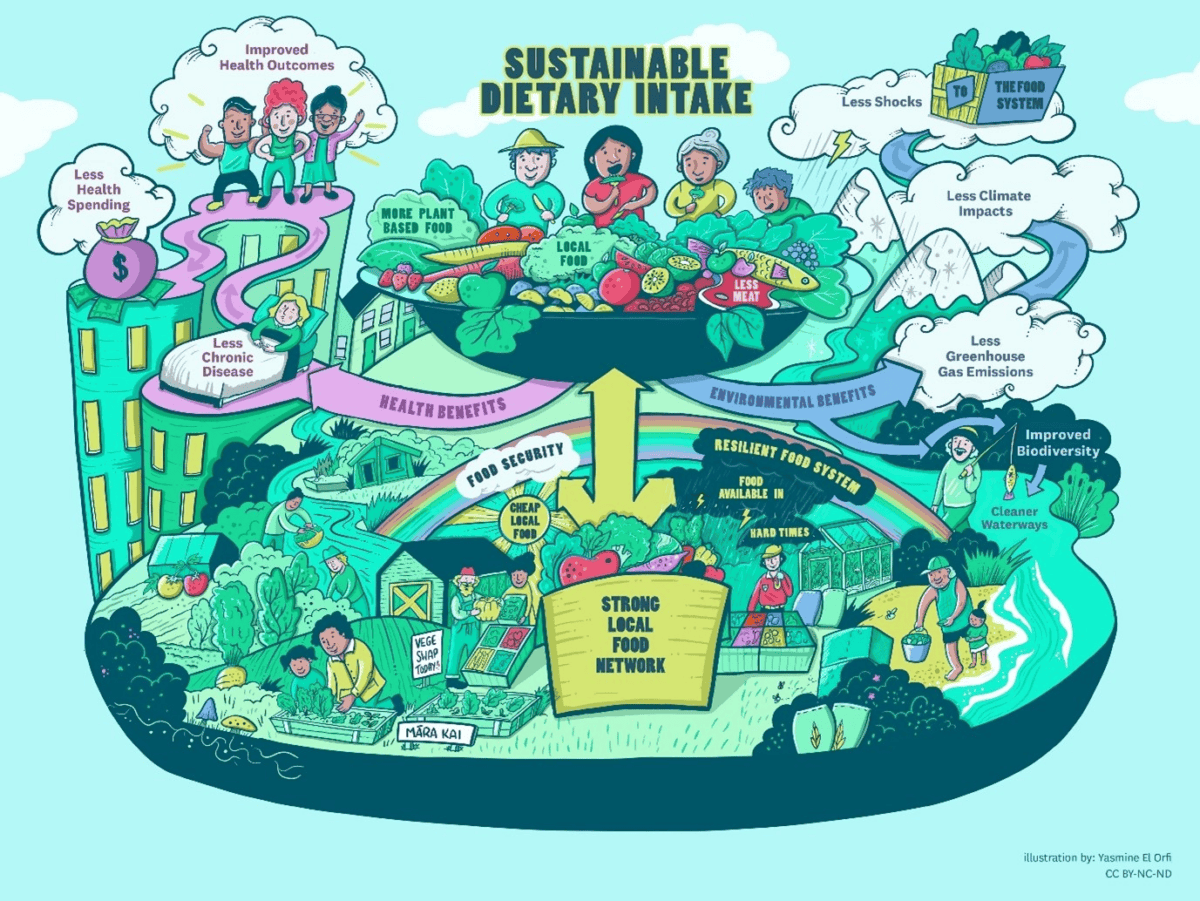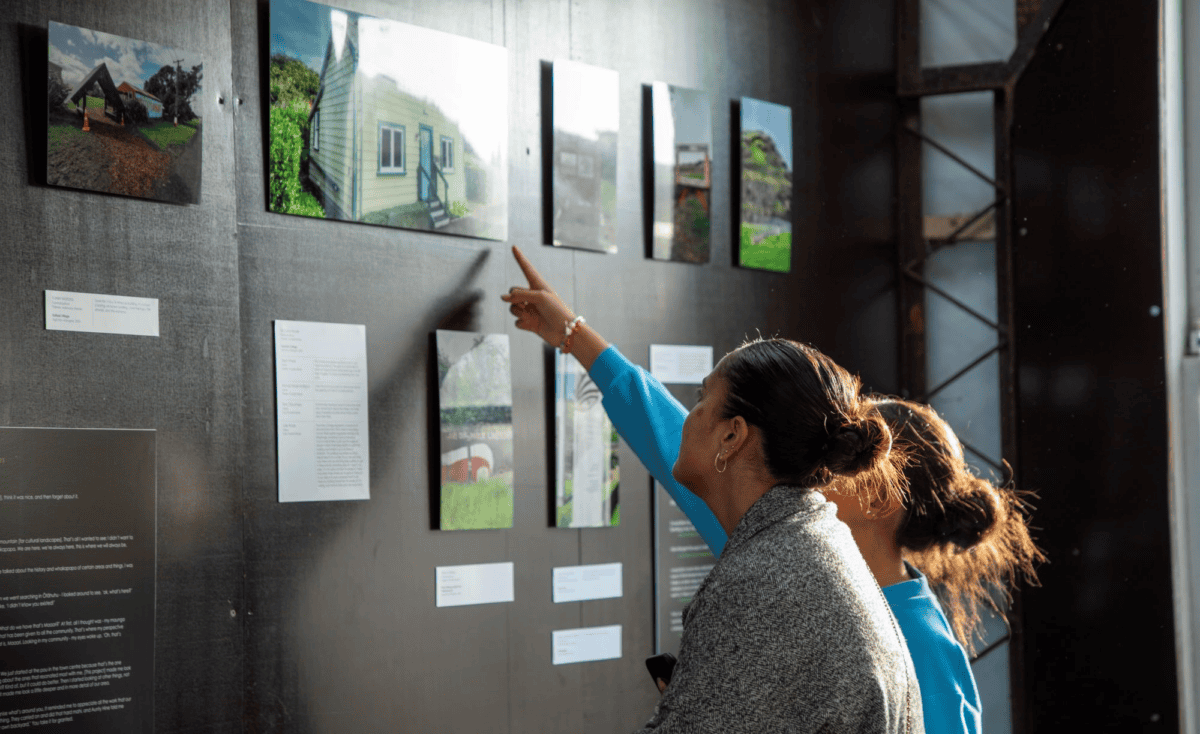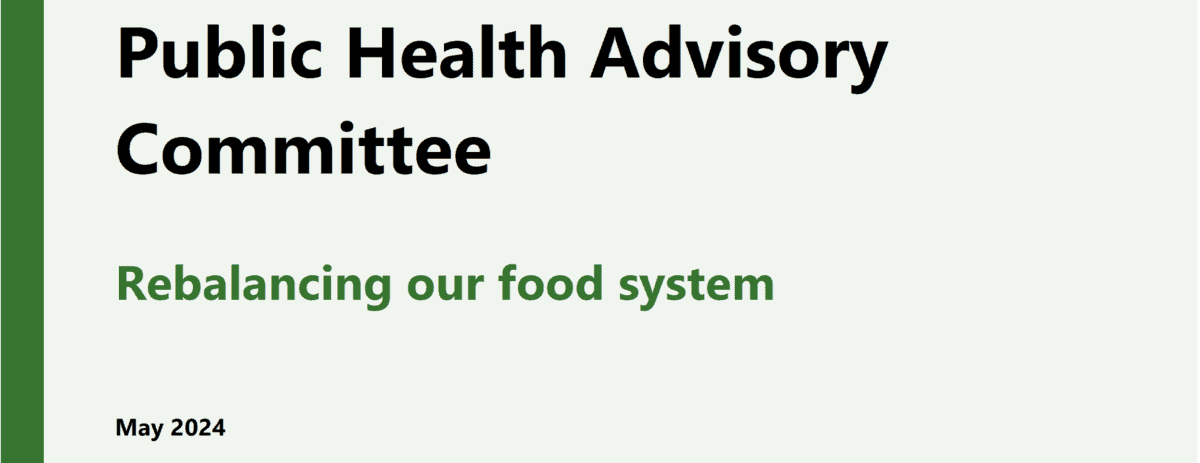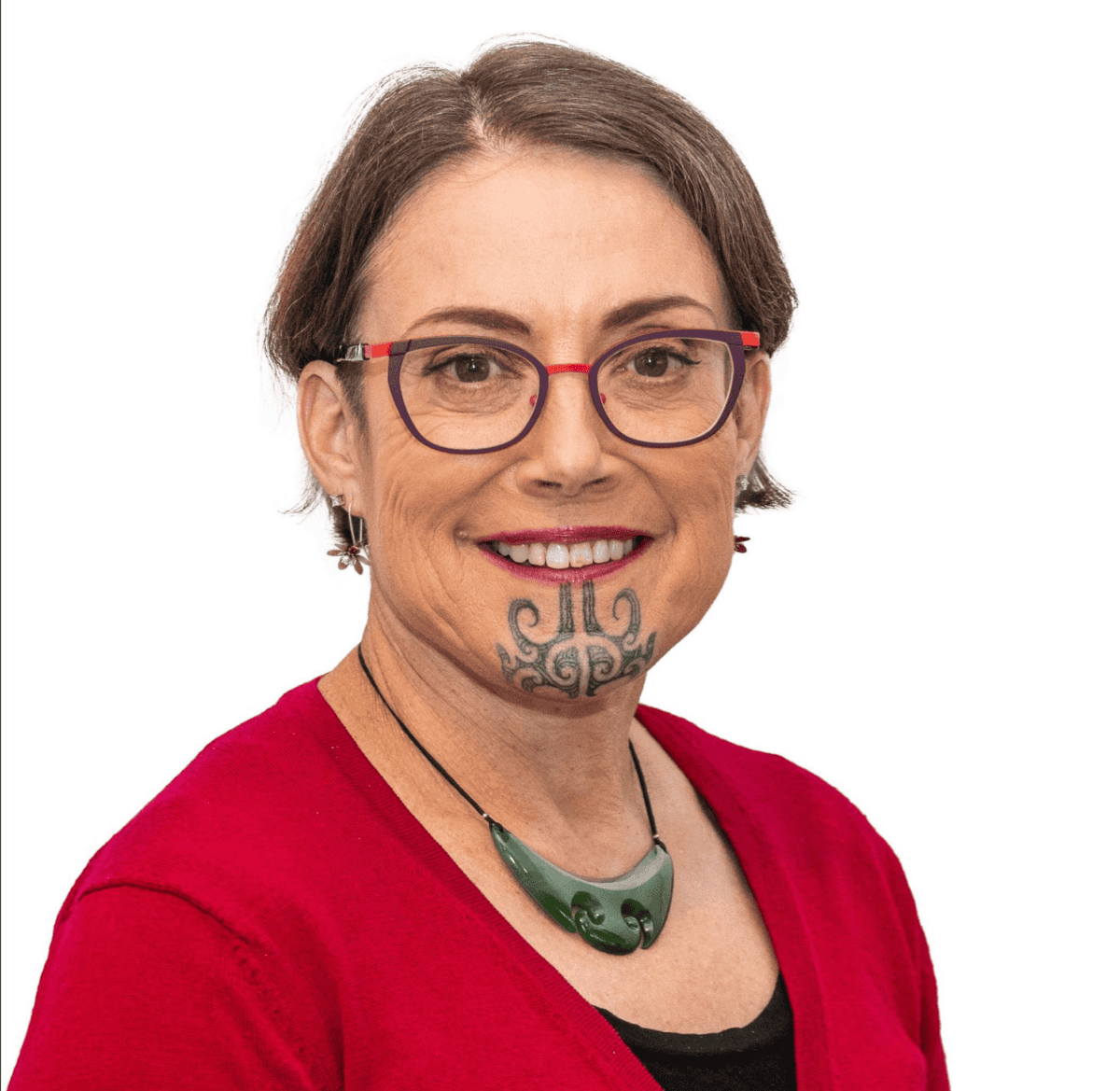Healthier Lives Newsletter June 2024
27 June 2024
Ka ara mai a Matariki, ka ara mai a Puaka, ka mānawatia a Puaka,
ka mānawatia a Matariki.
The celebration of Matariki in 2024 coincides with the official end of National Science Challenge funding. It is a time for us to acknowledge the mahi and dedication of our researchers and communities over the last decade, and their aspirations for the future of mission-led research in Aotearoa.
Te iwa a Matariki, the nine stars of Matariki, embody many of the areas that Challenge research sought to inform: our rivers, oceans, soils, and the plants and animals that inhabit these environments. For Healthier Lives, it is Matariki herself that most closely connects with our mission to improve people’s health and wellbeing as well as that of the environment.
In our penultimate newsletter, we see how the health of people and the environment are intimately linked, through films about research that is improving access to active transport options, a photo exhibition showcasing how cultural connection with the urban environment is important for wellbeing, and an illustration of the complex interplay between dietary patterns, our health and the health of our planet.
Noho ora mai,
—The Healthier Lives team
Communities embrace new transport initiatives
Two short films from filmmaker Ollie Dawe highlight the wide-ranging benefits of active and shared transport initiatives currently benefitting communities in both the North Island and South Island.

The ACTIVATION research group* co-designed and evaluated these initiatives, which received enthusiastic support from community, non-government, private, and government organisations.
To extend the benefits of these climate-friendly options to other communities in Aotearoa New Zealand, recognition of their value and Government investment will be needed.
Read more:
Towards healthy transport choices for all
Watch the films:
Short film about access to shared e-bikes and cars in Christchurch
Short film about community access to e-bikes in Māngere
*The ACTIVATION project is funded by Healthier Lives and Ageing Well and led by Professor Karen Witten (Massey University), Professor Simon Kingham (University of Canterbury), Dr Angela Curl (University of Otago, Christchurch) and Dr Hamish Mackie (Mackie Research)
Health and climate co-benefits of sustainable diets

A Healthier Lives research project has been investigating health and climate co-benefits of creating a shift in dietary patterns in Aotearoa New Zealand.
The Sustainable New Zealand Kai project, led by Dr Cristina Cleghorn (University of Otago, Wellington), modelled a range of theoretical diets that would not only improve our health, but would be more sustainable for our planet.
Dr. Cleghorn recently teamed up with talented designer Yasmine El-Orfi to use the power of a picture (and a few words) to illustrate the predicted impact of a sustainable diet on our health, economy and environment, and how it would contribute to greater food security, a more resilient food system and greater biodiversity. All on a single page!
Photos capture community voice

A recent photo exhibition marked the culmination of a kaupapa Māori research project led by ACTIVATION researchers Kimiora Raerino and Rau Hoskins, which investigated how mana whenua see cultural identity reflected in their urban environment.
The ACTIVATION project (jointly funded by Healthier Lives and Ageing Well) is investigating the impact of community infrastructure on people’s health and wellbeing. Read our website story to find out how documenting cultural landscapes uncovered the importance of these features, not only for whānau but also for the relationships that underpin the health of communities.
PhotoVoice exhibition captures unique perspectives
Healthier Lives researchers contribute to report
Rebalancing our food system, a sixty-page report from the Public Health Advisory Committee, was launched last month. The report was commissioned by the previous Minister of Health in recognition that many New Zealanders don’t have access to the food needed for their health and wellbeing, leading to high rates of chronic disease and food insecurity, accompanied by adverse environmental and climate change effects due to unsustainable food production.

This comprehensive report incorporates research and advice from a range of stakeholders, including communities, NGOs, industry, government agencies and academics. It outlines a shared vision of a food system in Aotearoa New Zealand that works for everyone.
The report acknowledges the expertise, support and input of three Healthier Lives researchers: Dr Cristina Cleghorn, Professor Cliona Ni Mhurchu and Dr Christina McKerchar. It also reiterates the need for a National Food Strategy, which Healthier Lives, along with six other National Science Challenges, has previously called for.
Pressures on the food system and food production sector to be responsive to climate change (both domestically and from international markets), along with the escalating costs of treating food-related chronic diseases, will likely see this report and its recommendations become instrumental in government initiatives over the coming decades.
Spreading the word about Implementation Science

Implementation Science might sound like a formidable discipline, but it can be simple when it’s broken down into steps. It’s a branch of science that helps work out the best way of moving from evidence to practice. That’s something health policy makers, planners, providers, and researchers all have a strong interest in.
One Healthier Lives research group, led by Professor Sue Crengle (University of Otago), feels that the time is right to spread the word about the benefits of Implementation Science for healthcare delivery in Aotearoa New Zealand.
Read about Implementation Science masterclasses and workshops offered by the Health Systems Change team last month.
Congratulations

We warmly congratulate Associate Professor Matire Harwood (Ngāpuhi, Ngāti Hine, Ngāti Rangi ki Moerewa) on being made a Companion of the King’s Service Order for her work during the Covid-19 pandemic, where she provided advice to the Government and delivered clinical care in South Auckland.
Associate Professor Harwood is a Deputy Dean of the Faculty of Medical and Health Sciences (University of Auckland), a primary care GP at Papakura Marae, and a Healthier Lives principal investigator with interests in heart disease and diabetes.
In the news
Interest growing in Oire Tokoroa model

A Healthier Lives Pacific-focused diabetes prevention initiative has been featured on radio and television. The family focus of the Oire Tokoroa Family Diabetes Lifestyle Programme emerged as a priority during a 2020 workshop to scope Pacific-led research in the second phase of Healthier Lives.
Oire Tokoroa was co-designed as a partnership between Pacific reseachers at Massey University and the Tokoroa-based community health provider South Waikato Pacific Islands Community Services (SWPICS). The programme centered on the role of vaevaeorooro (family champions) in supporting Pacific families.

Oire Tokoroa research co-ordinator Penina Hitti (top) and SWIPCS-based researcher Elizabeth Okiakama (right) were recently interviewed on Sāmoa Capital Radio about the success of the programme, which featured the co-created intergenerationally-friendly Kai Tari cookbook and healthy food box. Family fun nights and exercise sessions also assisted families in their goal of preventing type 2 diabetes in their community.
This model has since been adapted for the Fanau Manuia programme in Wellington, funded by A Better Start National Science Challenge, to help prevent obesity and prediabetes in children. Interviews with the Massey University research team featured on NewsHub earlier this month, with local and international interest growing in this Pacific-led initiative.
Watch the Sāmoa Capital Radio interview (starts ~ 3 hours, 7 mins)
Hear how the Oire Tokoroa model has been adapted for a different Pacific community
Compounding factors increase bowel cancer risk in Southland

Healthier Lives Deputy Director, Professor Parry Guilford (left), and Associate Professor Brian Cox (right, both University of Otago) discussed the multiple factors that contribute to an increased incidence of bowel cancer in Southland and Otago at a recent event organised by non-profit organisation Hope without Fear.
Through his Healthier Lives research, Professor Guilford is championing the development of a blood test that can diagnose and monitor colon cancer, which could aid early detection of the disease in rural and remote areas.
Stuff article: Compounding factors increase bowel cancer risk in Southland
What New Zealand can learn from Barcelona’s “superblocks”

In an article for The Conversation, Professor Simon Kingham (University of Canterbury) recently highlighted the many advantages of Barcelona’s “superblocks” – neighbourhoods where traffic speeds are reduced, through-traffic is limited, and public space is freed up for other activities.
With one of the world’s highest rates of car ownership, Aotearoa New Zealand could learn from the strategic, low-cost measures introduced in Barcelona and other European cities to enhance urban environments.
Closer to home, Professor Kingham leads Healthier Lives and Ageing Well-funded research exploring the use of shared transport, which can also contribute to improving our public spaces.
NZ Herald: What NZ cities can learn from Barcelona’s ‘superblock’ urban design
The Conversation: Rethinking roads as public spaces
Publications
Māori and Pacific families’ experiences and perspectives of cardiovascular care; A qualitative study. Brewer, K. M., Taueetia-Su’a, T., Hanchard, S., Vaka, S., Ameratunga, S., Tane, T., Newport, R., Selak, V., Grey, C., & Harwood, M. (2024). Australian and New Zealand journal of public health, 48(3), 100149. DOI: 10.1016/j.anzjph.2024.100149
Experiences and Acceptability of a Weight Loss Intervention for Diabetes (Diabetes Remission Clinical Trial—DiRECT) in Aotearoa New Zealand: A Qualitative Study within a Pilot Randomised Controlled Trial. Campbell K., Peddie M., Ashton N.,Ma’ia’i K., Russell-Camp T, Mann J, Camp J., Reynolds A.N. (2024) Nutrients, 16(12), 1853; DOI: 10.3390/nu16121853


